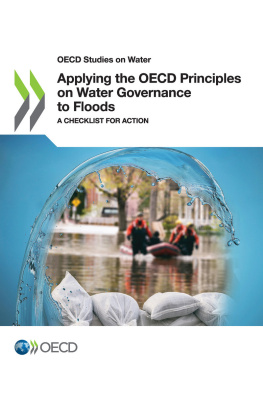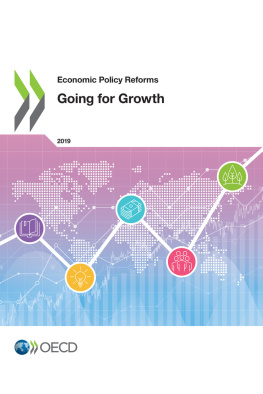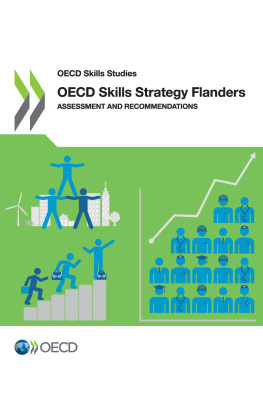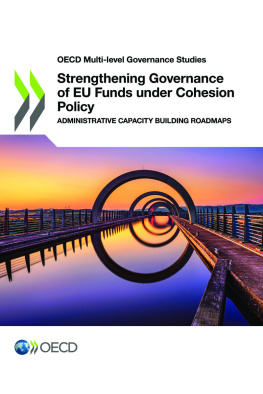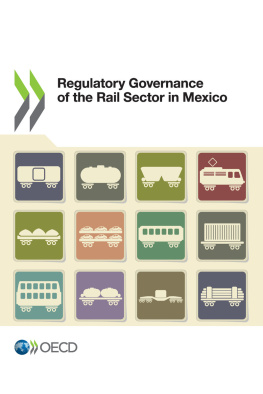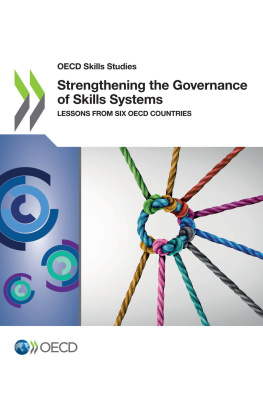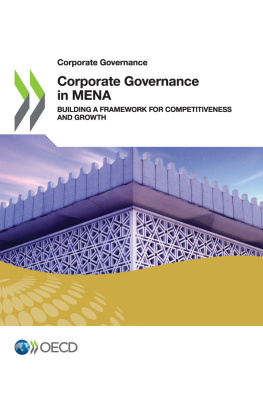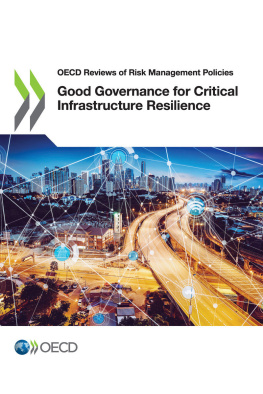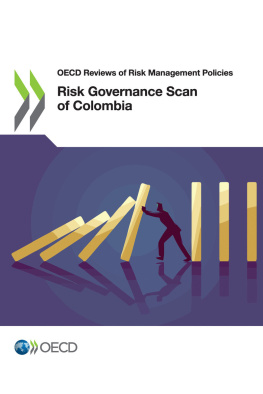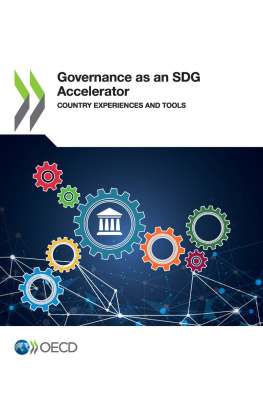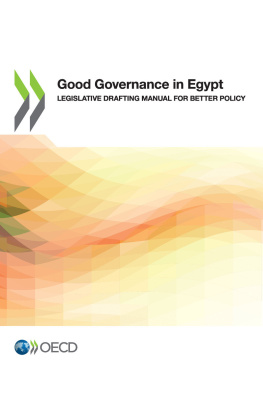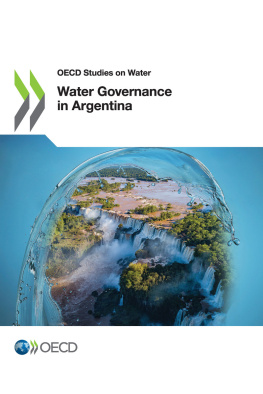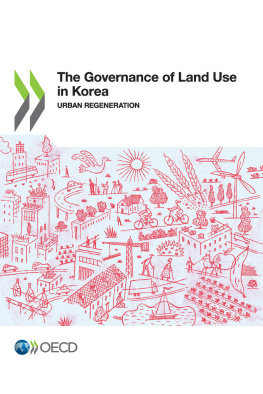OECD - Applying the OECD Principles on Water Governance to Floods
Here you can read online OECD - Applying the OECD Principles on Water Governance to Floods full text of the book (entire story) in english for free. Download pdf and epub, get meaning, cover and reviews about this ebook. year: 2019, publisher: OECD Publishing, genre: Politics. Description of the work, (preface) as well as reviews are available. Best literature library LitArk.com created for fans of good reading and offers a wide selection of genres:
Romance novel
Science fiction
Adventure
Detective
Science
History
Home and family
Prose
Art
Politics
Computer
Non-fiction
Religion
Business
Children
Humor
Choose a favorite category and find really read worthwhile books. Enjoy immersion in the world of imagination, feel the emotions of the characters or learn something new for yourself, make an fascinating discovery.
Applying the OECD Principles on Water Governance to Floods: summary, description and annotation
We offer to read an annotation, description, summary or preface (depends on what the author of the book "Applying the OECD Principles on Water Governance to Floods" wrote himself). If you haven't found the necessary information about the book — write in the comments, we will try to find it.
OECD: author's other books
Who wrote Applying the OECD Principles on Water Governance to Floods? Find out the surname, the name of the author of the book and a list of all author's works by series.
Applying the OECD Principles on Water Governance to Floods — read online for free the complete book (whole text) full work
Below is the text of the book, divided by pages. System saving the place of the last page read, allows you to conveniently read the book "Applying the OECD Principles on Water Governance to Floods" online for free, without having to search again every time where you left off. Put a bookmark, and you can go to the page where you finished reading at any time.
Font size:
Interval:
Bookmark:
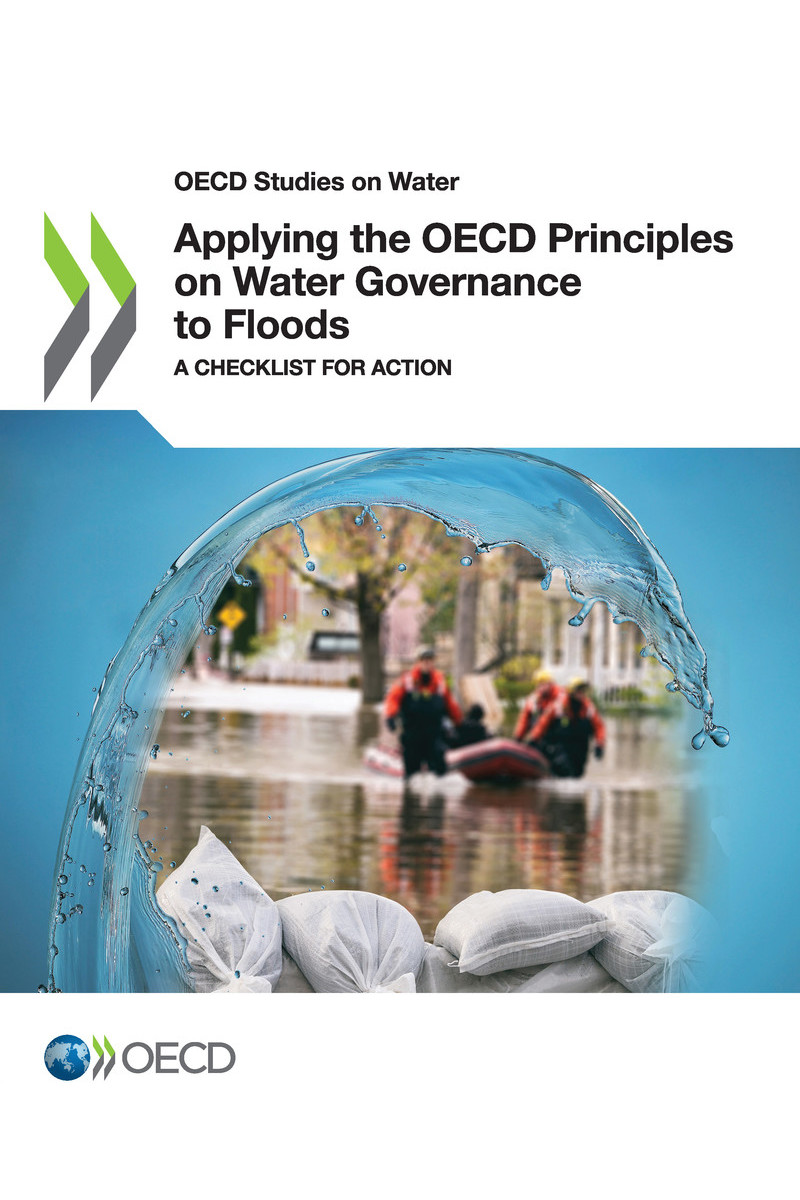
OECD (2019), Applying the OECD Principles on Water Governance to Floods: A Checklist for Action , OECD Studies on Water, OECD Publishing, Paris, https://doi.org/10.1787/d5098392-en .
Flooding is the most common of all natural disasters, and there is growing consensus that the frequency and number of people at risk from floods will increase. Global megatrends, including climate change, population growth and urbanisation profoundly exacerbate the frequency, intensity and impact of flooding. The OECD estimates that the number of people at risk will increase from 1.2 to 1.6 billion people between now and 2050. This will represent around 20% of the world population. In 2016, 23.5 million people were displaced because of weather-related disasters, of which the majority were associated with floods or storms. In between 1998 and 2017, floods accounted for close to one-quarter of global economic losses due to natural disasters.
Social, economic and environmental losses due to floods relate to both infrastructure and governance challenges. The increase of such losses in the recent past is not only due to more frequent and extreme floods, but also because of inadequate water and land use planning, as well as unsustainable infrastructure and technical solutions for managing floods. The report acknowledges that hybrid solutions, combining green and grey infrastructure measures are needed to address floods. Therefore, careful analyses should be conducted to evaluate the range of available options and design flood management schemes that combine natural, infrastructural and policy instruments in the most effective way.
Adaptation to flood risk requires a diversified approach from structural flood protection measures, early warning systems to nature-based solutions, social protection and risk financing instruments. The correct mix of measures varies from place to place, subject to levels of risk, funding, and political will, therefore, one size-fits-all approach cannot be applied. It will be increasingly important to evaluate choices with strengthened comprehensive, integrated and participatory multilevel governance approaches across foresight, mitigation, preparedness, response and recovery stages of flood management.
The report argues that improved flood governance greatly enhances the design, implementation and impact of flood-related policies and management measures. It stresses the importance of involving stakeholders in flood governance decision-making and increasing policy coordination, especially between water, land and climate change management. Four years after the adoption of the OECD Principles on Water Governance and in the framework of the implementation strategy developed under the OECD Water Governance Initiative , this report applies the 12 OECD Principles to analyse a compilation of 27 specific cases of flood management from around the world (one case focuses on transboundary strategic plan for flood management; nine cases concern national policy and/or programmes; five cases describe the governance arrangements for the day-to-day management of floods in specific locations; three cases present state/provincial flood management plans; three cases look at specific flood events; and six cases concern research projects, at the national or basin level). The report also builds on the guidance from the Recommendation of the 2014 OECD Council on the Governance of Critical Risks and its high relevance to floods.
The report suggests a Checklist with self-assessment questions to support flood management decision making. The Checklist intends to encourage stakeholder dialogue and peer learning, help understand better how flood governance systems are performing at local, basin and national level, and guide decisions at all levels. The Checklist primarily targets decision makers and practitioners directly responsible for flood management from the local to the national level, and is expected to be of relevance to risk managers and the broader range of water constituencies and stakeholders.
The report was approved by the Regional Development Policy Committee through written procedure on 4 June 2019, under the COTE CFE/RDPC/WGI(2019)3.
This report was prepared by the OECD Centre for Entrepreneurship, SMEs, Regions and Cities (CFE) led by Lamia Kamal-Chaoui, Director, as part of the Programme of Work and Budget of the Regional Development Policy Committee.
The report was co-ordinated and drafted by a core team in CFE composed of Hkan Tropp (Head, Water Governance Programme), Delphine Clavreul (Counsellor), Natalia Altman (Junior Policy Analyst), Antonio Canamas Catala (Junior Policy Analyst), and Oriana Romano (Policy Analyst), under the supervision of Aziza Akhmouch, Head of the Cities, Urban Policies and Sustainable Development Division in CFE. Emeline Hassenforder also provided valuable contributions to an earlier version of the report as former OECD staff.
The OECD Secretariat is thankful to the experts, decision makers and practitioners (full list accessible in Annex B) who provided inputs and comments, contributed with case studies, peer-reviewed the checklist and/or hosted meetings. Draft versions of this report were discussed at several events, including the STAR-FLOOD Conference Towards more resilient flood risk governance (Brussels, 4-5 February 2016), the Dutch Water Governance Centre Sunset Symposium (Amersfoort, 10 March 2016) and the Adaptation Futures 2016 Conference (Rotterdam, 10-13 May 2016). Interim findings were also presented at the 7th and 11th meetings of the OECD Water Governance Initiative to test hypotheses and seek comments. Thanks are also extended to OECD colleagues Xavier Leflaive (Principal Administrator) and Lisa Danielson (Policy Analyst) in the Environment Directorate for their useful comments.
Font size:
Interval:
Bookmark:
Similar books «Applying the OECD Principles on Water Governance to Floods»
Look at similar books to Applying the OECD Principles on Water Governance to Floods. We have selected literature similar in name and meaning in the hope of providing readers with more options to find new, interesting, not yet read works.
Discussion, reviews of the book Applying the OECD Principles on Water Governance to Floods and just readers' own opinions. Leave your comments, write what you think about the work, its meaning or the main characters. Specify what exactly you liked and what you didn't like, and why you think so.

